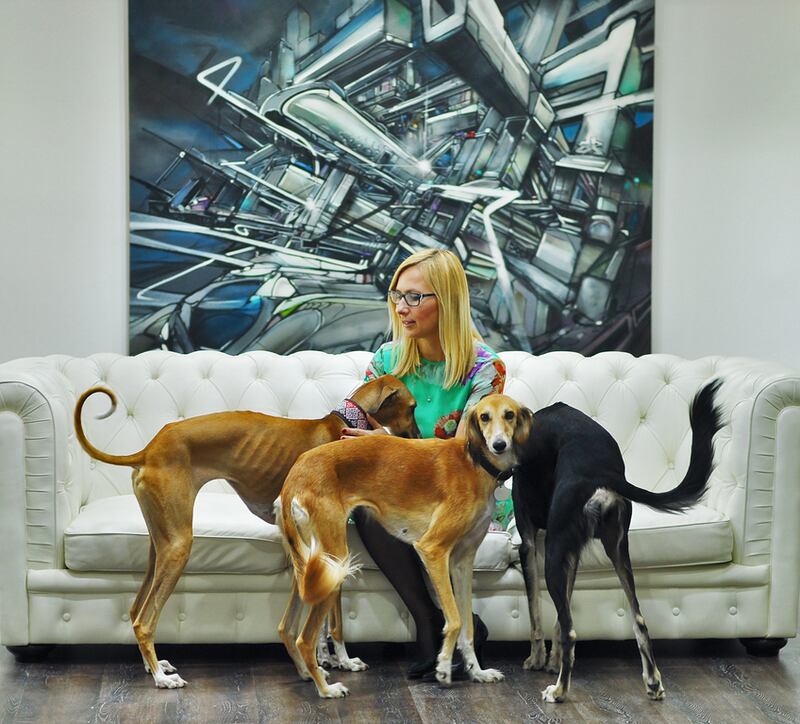DUBAI // For centuries, the noble desert dog stood by its Bedouin masters – but a growing number of abandoned salukis may soon be on their own.
Yelena Valici, a Russian expatriate, was dedicated to finding new homes for dumped members of one of the oldest breeds of dogs.
Mrs Valici established the Arabian Saluki Centre of Dubai in 2010 but she has recently moved to Greece to start a business with her husband.
Volunteers had been rescuing up to nine salukis a month, finding them new homes with owners in Europe and America.
But now Mrs Valici fears no one will dedicate the same time to protecting salukis, which are a symbol of the UAE’s heritage.
Her hopes of establishing a permanent rescue centre for salukis failed, and now other pet rescue groups are calling for a complete overhaul of animal welfare laws to help protect the special breed.
Mrs Valici, who lived in the UAE for 19 years, is also pleading for more volunteers to keep her work going and land for a permanent saluki centre.
“Without a centre it has been very difficult to manage,” she said. “There is a maximum capacity we can take into foster homes while we find them permanent homes.
“Salukis are an ancient breed but there are not many pedigrees in the UAE.
“They are beautiful animals and an important part of the country’s heritage.”
The centre in Dubai has more than 6,000 Facebook followers, with many expatriates taking in salukis because they are seen as fashionable.
Traditionally used for hunting gazelle or rabbit, and more recently for racing, salukis need plenty of exercise and develop strong bonds with their owners.
But many new owners underestimate the care the dogs need and sometimes abandon them on the streets or in the desert.
“There is a certain image of Arabian salukis in the US and Europe. They are special dogs,” Mrs Valici said. “If they are kept in a kennel or shelter without exercise, it will break their spirit. They have to be adopted into the right home.
“The first one I rescued from a construction site lived with me until he was 12. They form a strong bond with their owners.”
She now has three salukis – Hamdoon, 5, Hawa, 3, and Philipa, 7. The latest to be rescued was named Adnec – after it was found near the Abu Dhabi National Exhibition Centre.
Rawan, who was born in the UAE and is one of the group’s finders, said: “Sometimes we find them in the street, or people call us to help dogs that have run from farms.
“I love this breed because they can stand the heat here. I have known them since I was a kid.”
Hundreds of salukis, or exotic Arabian greyhounds, compete in the annual Saluki Championship in Al Marmoum, Dubai.
Organised by the Hamdan bin Mohammed Heritage Centre, the event is widely regarded as one of the most lucrative and prestigious traditional pastimes.
“Salukis are specialist dogs and require a lot of exercise and specific care,” said Kirstie Lawton, a Briton who runs People for the Protection of Animals. “People take them in but don’t care for them correctly, so they are abandoned. This country needs an affiliation with an organisation like the Royal Society for the Protection of Animals, which works with the municipalities and government to offer their expert advice.”
Ms Lawton urged that all animals be registered on a national database so that abandoned pets could be traced, with tighter enforcement for people who mistreat animals.
“All that could be centralised through RSPCA-supported centres that follow international guidelines,” she said. “Most countries already have that in place. There is the will but someone in the UAE needs to make it happen.”
nwebster@thenational.ae







